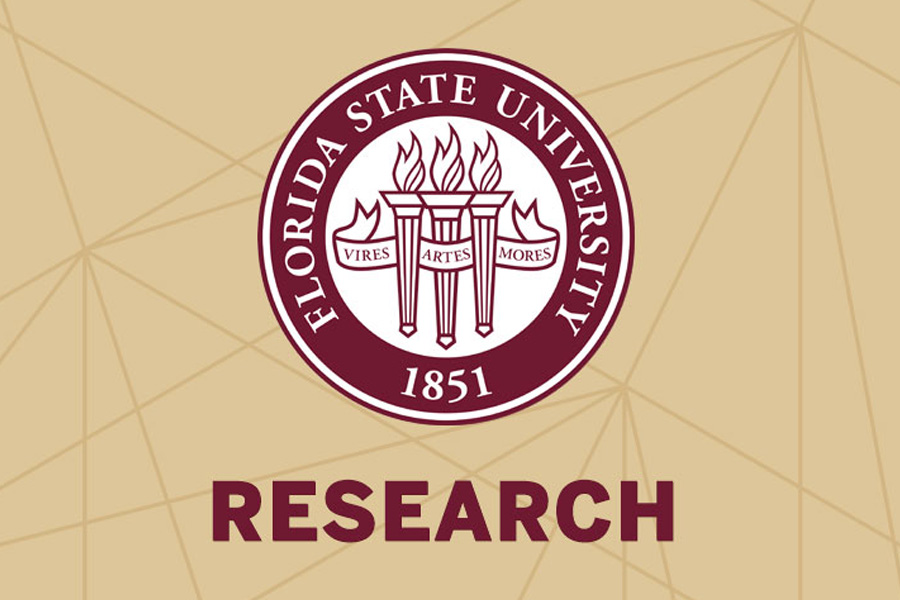
Florida State University’s Office of Research will allocate over $400,000 to fund 26 interdisciplinary projects that address questions related to COVID-19.
The research tackles a variety of questions around the health, social and economic impacts brought on by the coronavirus pandemic. Projects include exploring possible therapies, the development of tools for tracking infections and an examination of how the pandemic has affected mental health.

“The projects we chose represent scholarship from across the university,” said Vice President for Research Gary K. Ostrander. “This is an exciting opportunity and responsibility for FSU. As researchers, we have an obligation to use our specialized skills to help understand this disease and its impacts.”
Many of the projects were conceived through an event known as Collaborative Collision, which brings together faculty from different departments to work together on research that bridges traditional academic disciplines. The Office of Research Development has organized Collaborative Collision events since 2016.
Previous Collaborative Collision events usually funded one or two projects, but because of the extraordinary reach and impact of COVID-19, the Office of Research Development funded as many high-quality proposals as it was able to support. The seed funding is intended to help researchers quickly move forward on projects that show promise for receiving federal funding that supports research answering questions about the pandemic.
Many of the funded proposals involve medical research, but the office is also funding projects that examine the broad impacts of a disease that has affected life in many ways. In Florida and across the world, the way people work, study, eat, play and live together has changed. This research will help explain the effects of COVID-19 and investigate how humanity can cope with the changes brought on by the disease.
For example, Yanshuo Sun, an assistant professor of industrial and manufacturing engineering, will lead a project exploring how the COVID-19 pandemic affects people’s decisions about evacuating under the threat of oncoming hurricanes.
“Natural disasters, such as earthquakes, hurricanes and wildfires, will not disappear due to the presence of a public health crisis,” Sun wrote. “There is no evidence indicating that the ongoing COVID-19 pandemic in the U.S. will come to an end in June 2020, when the Atlantic hurricane season is expected to begin.”
The Atlantic hurricane season runs from June 1 through Nov. 30 with a peak in late August through the month of September. Several experts have predicted a more active season than usual this year.
“This pandemic is having major impacts on many aspects of life,” Ostrander said. “Florida State is involved in a wide variety of research activities and is ready to help answer the numerous questions posed by COVID-19.”
The full list of funded projects and the department or college of the principal investigator leading each project includes:
- College of Criminology and Criminal Justice: Considering Collateral Consequences of the COVID-19 Pandemic: Examining the Impact of the Pandemic on Prejudice, Hate Crime, and Victimization
- Department of Psychology: Understanding the Impact of COVID-19-Related Stress on Families
- Department of Psychology: A Longitudinal, Prepandemic-Postpandemic Assessment of the Mental Health and General Psychological Functioning of a Large Sample of Young Adults
- Department of Sport Management: A Grim Choice Facing the American Public: A Natural Experiment Testing the Impact of the COVID-19 Pandemic on Mental and Physical Health in the U.S.
- Department of Biomedical Sciences: Mesenchymal Stem Cell Derived Extracellular Vesicles as an Anti-Coronavirus Therapy
- College of Social Work: Immediate Economic, Social, and Health Impacts of COVID-19 for Vulnerable Mothers and Their Young Children
- Department of Biomedical Sciences: Establishing a Preclinical Discovery and Evaluation Pipeline for Small Molecule Inhibitors of SARS-CoV-2 Replication
- Department of Business Analytics, Information Systems and Supply Chain: Instilling Consumer Confidence on Social Media during the COVID-19 Pandemic: Implications for Rapid Economic Recovery
- Department of Computer Science: Achieving Economic Freedom and Public Health Through Deep Learning and Contact Tracing
- Museum of Fine Arts: Online Events and the Audience Experience in a Time of Crisis
- Department of Biomedical Sciences: Targeting Macrophage Activation-Induced Microvascular Injury to Treat COVID-19
- School of Communication Science and Disorders: Family-centered Practice during the COVID-19 Pandemic: Lessons Learned and Implications for AAC Service Delivery
- Department of Biological Science: siRNAs for Coronavirus Gene Knock-Out Research
- Department of Industrial and Manufacturing Engineering: Data-Driven Modeling and Learning of Hurricane Evacuee’s Individual Decision-making under COVID-19 Pandemic
- College of Social Work: Examining the Health, Economic, and Professional Impacts of COVID-19 on Human Service Workers
- School of Communication Science and Disorders: Knowledge and Self Efficacy to Provide Essential Research-based, Functional, Effective, Communication Tele-Therapy for Equitable Development (KASE-PERFECTED)
- Department of Biological Science: Characterizing Chromatin Variations in Human Cells in Response to SARS-Cov-2
- Department of Biological Science: Portable Drug Screening Microarrays for Discovery of COVID-19 Therapeutics
- Department of Psychology: Mortality Salience, Economic Failure, and Parenting Behaviors
- College of Social Work: A Pilot Study of mDOT for Immunosuppression Medication Adherence in Adolescent Heart Transplant Recipients During COVID-19 Pandemic
- Department of Educational Psychology and Learning Systems: Adolescent Social Media Use in the Time of COVID-19
- Department of Chemistry and Biochemistry: Biophysical Investigation of Action Dynamics of SARS-CoV-2 Main Protease for Effective Drug Discovery
- Department of Educational Psychology and Learning Systems: Psychological and Substance Use Impacts of COVID-19 Perceived Threat in Racially Diverse Emerging Adults
- Department of Nutrition, Food and Exercise Sciences: Risk Factors for COVID-19 Infection
- Department of Chemistry and Biochemistry: Lipid Rippers: Antiviral Polymers
- Department of Educational Leadership and Policy Studies: Creation of Dataset to Track County Level Variables and COVID Infections




